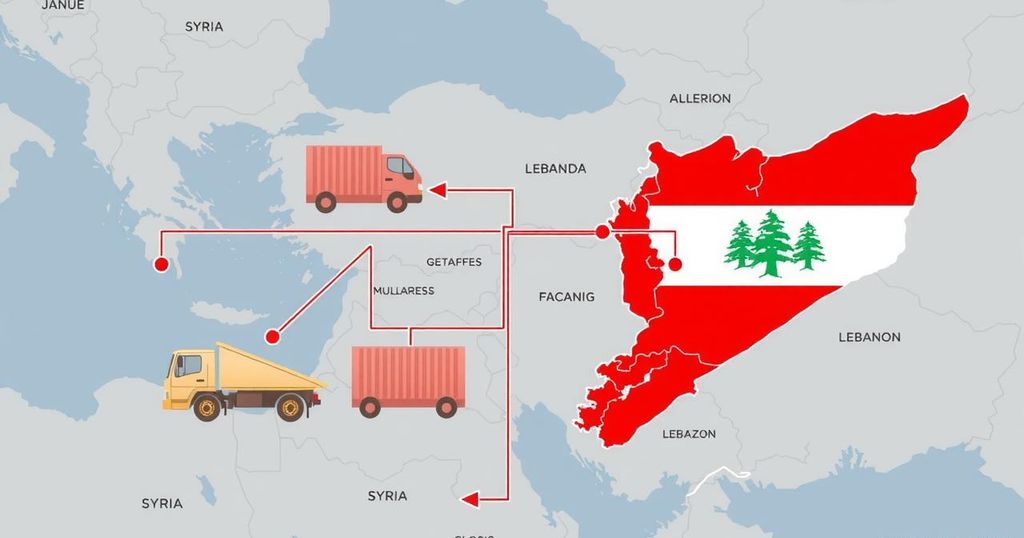In 2024, the Jordanian-Syrian Free Zone exported 214,000 tonnes of goods to Syria and Lebanon, up from 150,000 tonnes in 2023. This 40 percent trade increase highlights the zone’s growing importance in regional commerce. Investment in the automotive sector is also rising, with 90 showrooms now operational. Efficient processes have enabled 600 trucks to transport vital supplies to Syria since December.
In 2024, approximately 214,000 tonnes of goods were processed through the Jordanian-Syrian Free Zone towards Syria and Lebanon, reflecting a significant rise from 150,000 tonnes in 2023, according to Irfan Khasawneh, Director of the Free Zone. This uptick illustrates a 40 percent growth in trade activity, showcasing the zone’s increasing commercial importance. Goods are primarily transported via the Jaber border crossing, stored in the zone, and subsequently exported through the Nasib crossing to Syrian territories and ports. This development aligns with a growing interest in investment, particularly in the automotive sector, where there are now 90 active car showrooms. Since mid-December 2024, around 600 Jordanian trucks have successfully transported goods, including food supplies and energy devices, to meet the demand of the Syrian population. Mr. Khasawneh assured that the exchange processes within the free zone are efficient and capable of accommodating the volume of transactions without delays.
The Jordanian-Syrian Free Zone serves as a crucial trade conduit connecting Jordan with Syria and Lebanon, facilitating the exchange of essential goods. Over the years, this zone has become a focal point for commercial activities, especially in light of geopolitical developments in the region. The rise in trade volume indicates a potential recovery and revitalization of these commercial ties, which had been affected by the state of affairs in Syria.
In summary, the Jordanian-Syrian Free Zone has experienced a marked increase in trade activity in 2024, with 214,000 tonnes of goods exported to Syria and Lebanon, a notable rise from previous years. The flourishing automotive sector and efficient logistical operations further underline the growing significance of this free zone in regional commerce. As the political landscape evolves, the free zone is poised to leverage new opportunities for trade expansion.
Original Source: www.jordantimes.com






